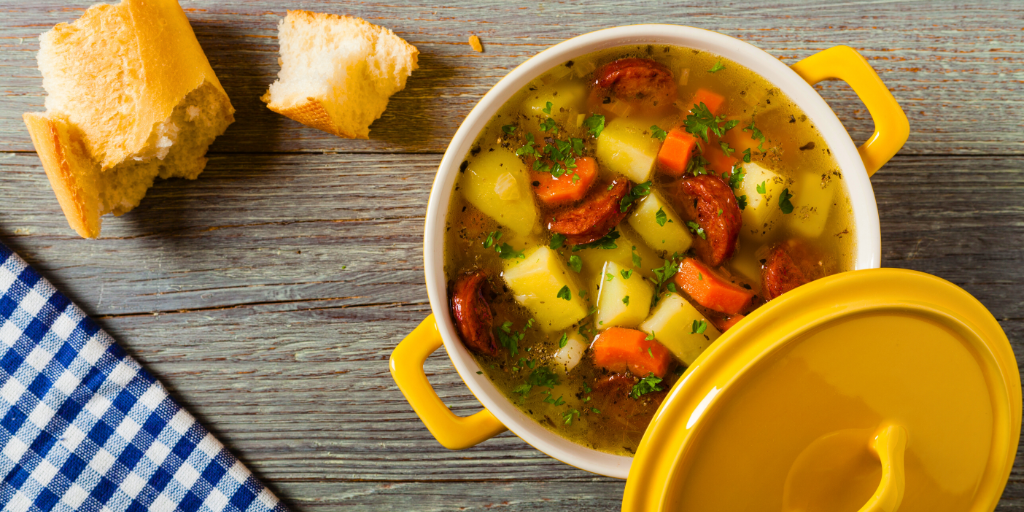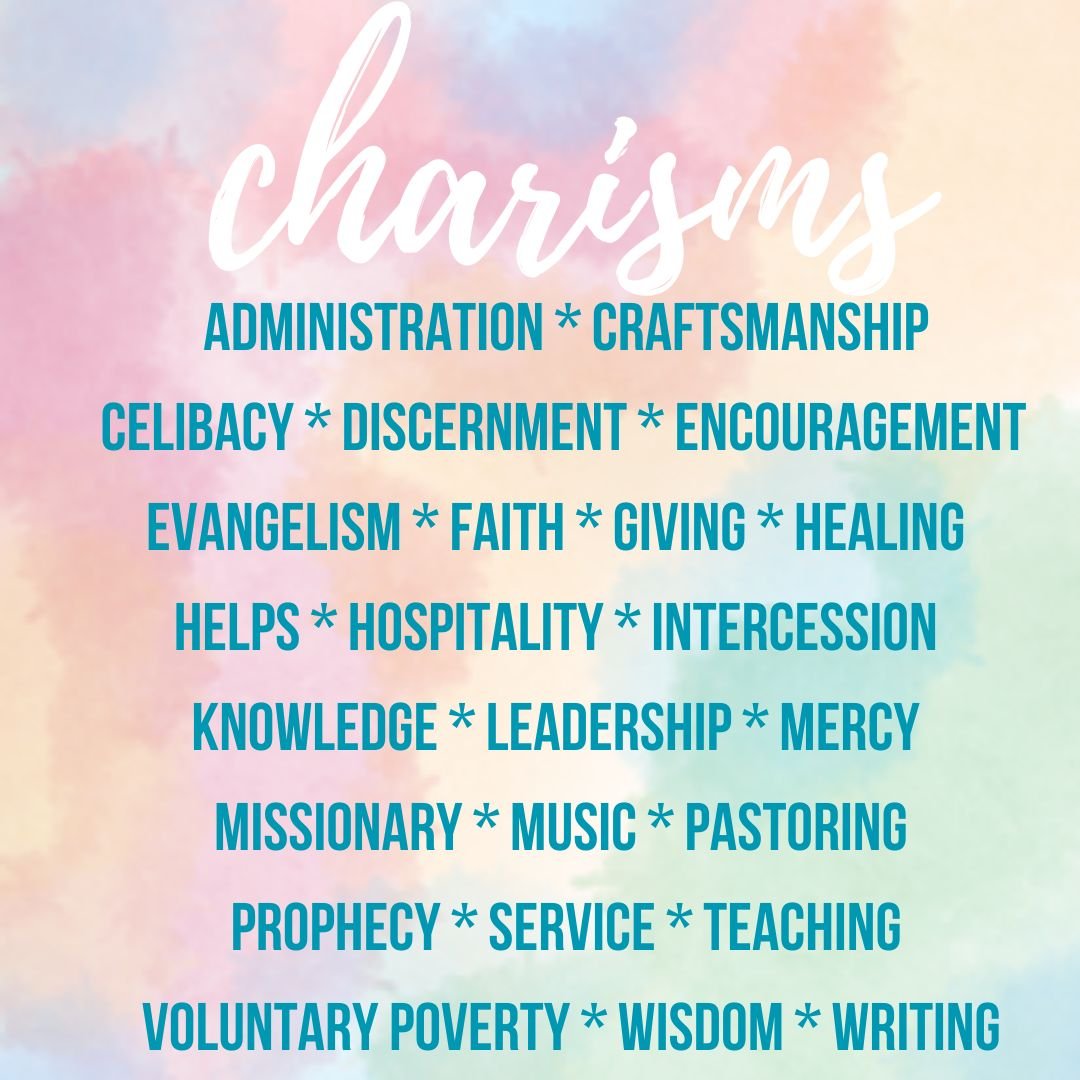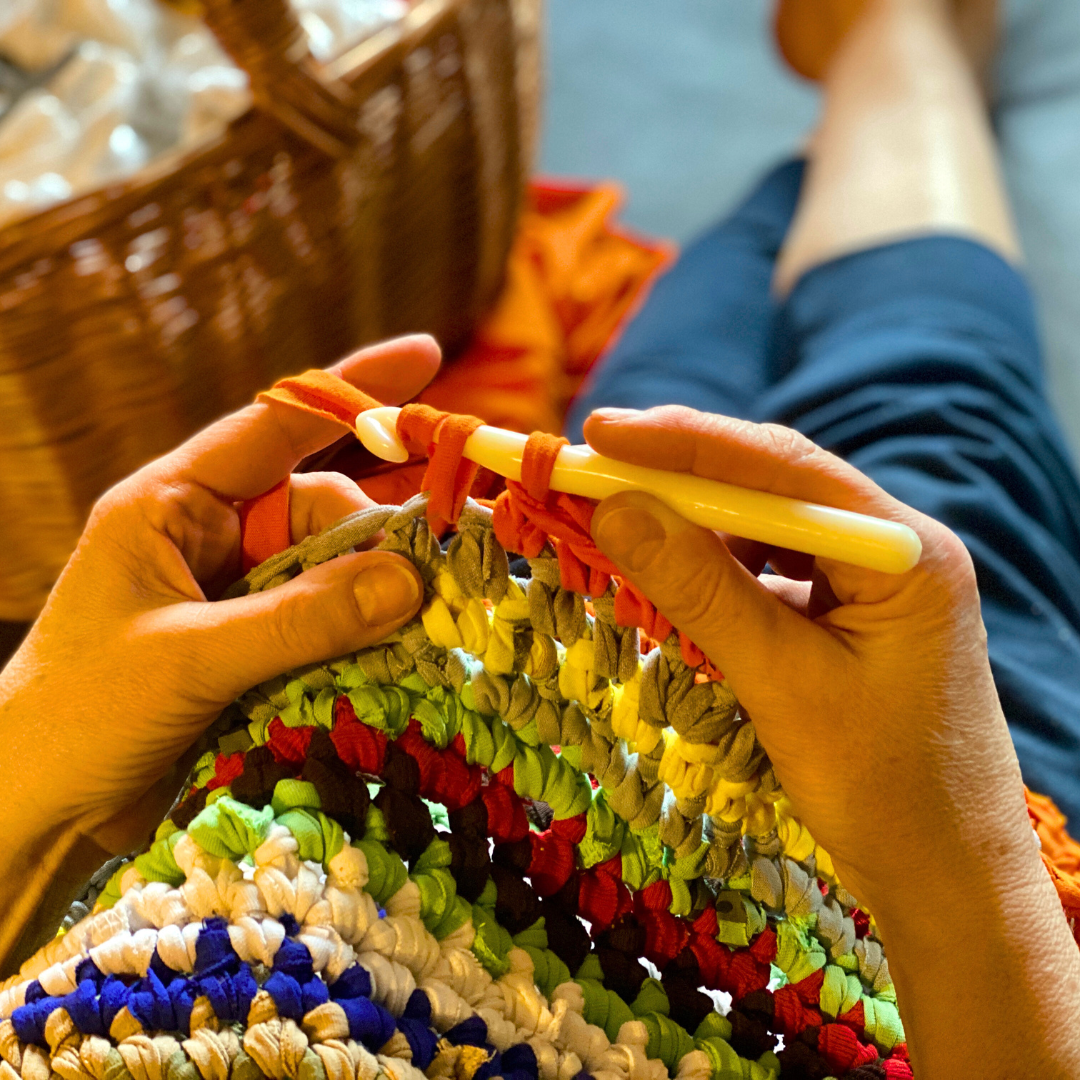
Learning the truth about the gifts she received from God has helped Kathryn Pasker Ineck find ways of ministering to others.
Stirring potato soup on the stovetop with one hand, nursing my 7-week-old with my other, and sneaking in bites of a peanut-butter-and-honey sandwich while keeping an ear out for the chatter of my toddler, I was trying to “do it all.” It was a crisp, bright morning and I worried that I was failing my sister: she had just bought her first home and I wanted to be there with her. I desperately wanted to help with the moving and unpacking and vacuuming and the million little things that help make a house a home.
Hence the soup.
Since I couldn’t do much in the way of manual labor, I could at least bring a meal to her and the friends and family who were doing the heavy lifting. I arrived at Suzi’s cute yellow house with a whoosh of swirling petals, pot of soup intact, little ones momentarily fed and dry.
But the soup.
Normally a creamy, perfectly seasoned dream, it was a thin and flavorless disaster. I still have no idea what went wrong, but I do know that perhaps I ought to have saved myself the trouble and just ordered a few pizzas!
.png?width=1080&height=1080&name=20230525%20KIneck%203%20(1).png)
Our lives are hectic: when we know that someone needs help, often providing a meal is our go-to act of service. We all need nourishment, after all, and we all eat rather regularly. Doubling a recipe to deliver to a family in a tough spot is a quick way to help that doesn’t require a lot of extra commitment. When we are sick, recovering from surgery, or caregiving, not having to worry about meal planning, prep, and clean-up is such a blessing.
When my kids were little, my husband often found me in a flurry of disposable aluminum pans, gallon-sized freezer bags, and marginally-feral kids as I rushed out the door to deliver yet another meal for a member of our community. During those years, it was mostly to help families adjust to their lives as they welcomed a new baby into their homes. It was a great way to feel productive in the community, offering help where I could—especially when I couldn’t participate in more organized ministries.
Over the past few years, I have neglected this meal-providing-ministry and haven’t replaced it with anything else. I can rationalize it in a thousand different ways: homeschooling became more intense. The kids’ food allergies became more complicated. We struggle with chronic health problems. I now work part-time. The only regular ministry I seem to be able to accomplish these days is schlepping my teenagers to all the parish ministries they are involved with—and throwing food at them at regular intervals. The idea of getting involved in any official parish ministry is anxiety-provoking, because I don’t have the bandwidth to be reliable.
Enter the freedom of charisms.
According to Many Parts Ministries, a charism is “an extraordinary power given a Christian by the Holy Spirit for the good of the church.” Charisms are given to us by the Holy Spirit when we are baptized, then reinforced in us by the Holy Spirit at Confirmation, and the purpose of each charism is solely to witness the love of Jesus to everyone we encounter. Each Christian is bestowed with around three charisms, and when we exercise the charisms we are given, we experience profound joy.

I recently listened to an episode of the Abiding Together Podcast, in which Sr. Miriam, Heather Khym, and Michelle Benzinger interviewed Jill Simons, the founder of Many Parts Ministries (Season 12 Episode 17).
Jill reignited my excitement about charisms when she observed that most people do not exercise their charisms in a church setting, but out in the world, in their day-to-day living. As a gal with the gift of intercessory prayer, this was a huge consolation to me: exercising this charism certainly does not fall under the quilt-makers, rosary-makers, or prayer shawl ministries, but that doesn’t mean it is any less important. (Although my craftsmanship charism argues that those happen to be perfect ministries for me!)
Understanding the importance of charisms frees us to be more intentional about our ministry in the church setting because we are more effective, more joy-filled, and more excited about witnessing our faith to others. Ministry, then, is no longer a box to check, but a natural expression of our faith, regardless of whether it’s cooking a pot of soup or ordering pizza and crocheting an afghan.
I’ll crochet the afghan, thanks.

To learn more about charisms, visit ManyPartsMinistries.com.
Parish-level Called and Gifted Workshops through the Catherine of Siena Institute are great resources!

Copyright 2023 Kathryn Pasker Ineck
Images: charisms word cloud created by Kathryn Pasker Ineck, all rights reserved; all others Canva
About the Author

Kathryn Pasker Ineck
Married for more than two decades to her best friend, and mom of four teens, Kathryn finds that life is never boring. She pursues the heart of God--led by His gentle Mother--and relies on the Divine Mercy Chaplet, a desire for chocolate, and an insatiable thirst for reading into the wee hours of the morning. She writes to maintain her sanity at Kathryn Pasker Ineck.


.png?width=1806&height=731&name=CatholicMom_hcfm_logo1_pos_871c_2728c%20(002).png)
Comments